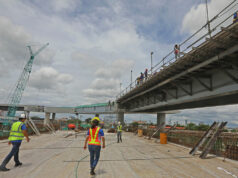THE Philippines is a potential beneficiary of shifting supply chains after the pandemic, but it needs to look beyond its infrastructure focus and leverage its strong fiscal position to develop its human capital, Moody’s Investors Service said.
The Philippines and Indonesia were fast-growing prior to the pandemic due to their young populations, but developing human capital will be more significant as suppliers reconfigure their manufacturing networks.
“Greater traction on the government’s infrastructure development program and initiatives to improve human capital development will bolster the country’s long-term growth outlook as well as investment prospects,” according to Deborah Tan, an Associate Vice-President and Analyst at Moody’s Credit Strategy and Research Group, said in an e-mail Wednesday.
She added that in other factors considered by manufacturing locators, like trade policy, regulation, wage costs and logistics, the Philippines is at a disadvantage relative to ASEAN.
The Philippines was focused on building up its infrastructure prior to the pandemic and is banking on such spending to drive its recovery in 2021. The government-backed Build, Build, Build program includes 92 infrastructure projects worth P4.4 trillion.
Moody’s said in a note that the Philippines, with a 66% enrolment rate in secondary education, is trailing other emerging-market economies like Indonesia (76%), Poland (93%), and Brazil (82%).
Moody’s added that ASEAN could take advantage of the shift in manufacturing locations by further boosting its own trading networks within the region.
“As its middle-class population grows, household purchasing power will rise and become a significant driver of consumption and investment. But the region will need to address structural challenges to harness its full potential,” Moody’s said.
The Philippines’ main attraction to investors is the young and growing workforce and strong policy position, Ms. Tan said.
“The country also has a stronger fiscal position relative to some of the ASEAN economies — that gives the government more space in terms of supporting policy reforms and encouraging private-sector investment,” she said. — Luz Wendy T. Noble



